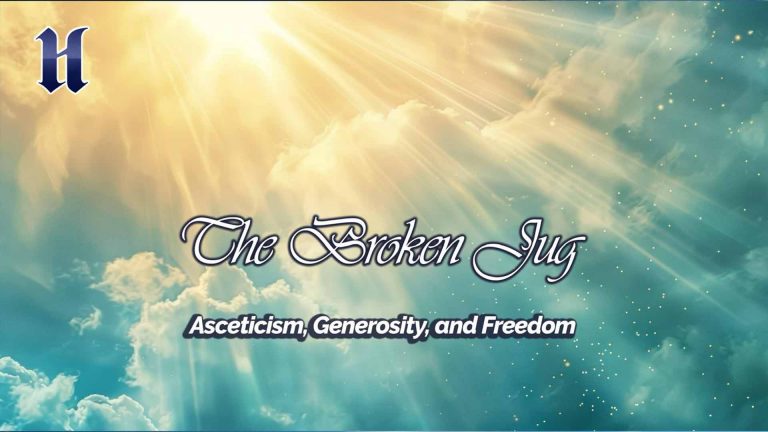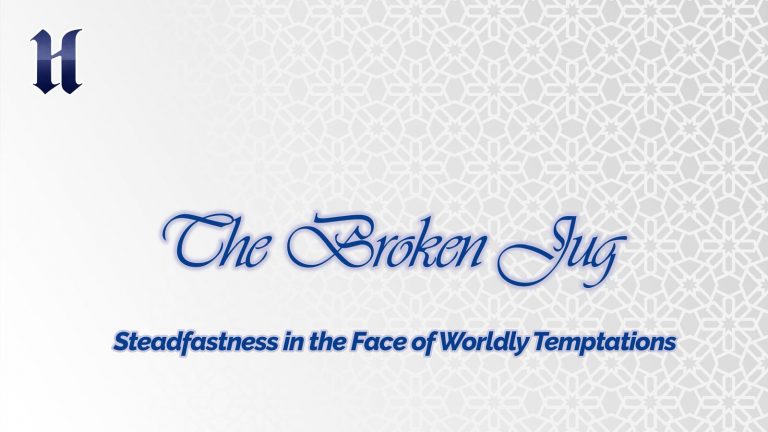Question: It is stated in a verse that “. . . it is in the remembrance of, and whole-hearted devotion to, God, that hearts find rest and contentment” (ar-Ra’d 13:28). Could you describe characteristics of remembrance (dhikr) that lets hearts find rest and contentment?
Answer: According to the verse, hearts finding rest and contentment (itminan) depend on remembrance of God. Then, we first need to expound on remembrance in general.
As a matter of fact, remembrance is like the lifeblood circulating in all forms of worship. No limitations are placed on remembrance with respect to time and condition; it therefore has a very extensive meaning.
The Greatest Remembrance: The Qur’an
The most exalted form of remembrance, which forms the basis of worship, is the Qur’an; it makes us remember the Archangel Gabriel, the Trustworthy Prophet, and God. The Qur’an is a sacred trust from the Giver of Trust brought by trustworthy hands to a trustworthy person. On the other hand, when you delve into the meanings of the Qur’an and journey through its valleys, that sublime message will stay with you throughout. For example, when you enter into the initial chapter al-Fatiha, think about what you come across: Right from the beginning you offer thankful praise for the blessings of God Almighty from the bottom of your heart, and feel due awe before God, Lord of the Worlds. As you experience such awe, Divine Names, such as “the All-Merciful” and “the All-Compassionate,” come to your aid and then you declare and confess that you only worship Him and seek help only from Him. When you see that the path you take is a very safe one, your request for guidance becomes clear and you ask for the way to the Straight Path. That is, you virtually say “My God, the first help I ask from Your Divine Court is to keeping up a moderate, straightforward, righteous, just, and balanced line at every matter.” After you have been guided to that Straight Path, you remember your potential fallibility and with this concern you ask for not ending up like those who incurred God’s wrath or went astray. Therefore, each word in the chapter of al-Fatiha has serious relevance for people like us, in dire need of God and remembrance of Him. Thus, when you travel through the Qur’an from the beginning to end, trying to understand its intended meaning and read it as if each verse is directly addressing you, you understand how that exalted message is a great remembrance throughout, and how it addresses human character, logic, thought, and psychology, or in essence all of humanity with its extensive dimensions and profundities.
Listening to the Remembrance of the Universe via the Qur’an
Trying to contemplate the existence within the Qur’an is a different type of remembrance. At the end of “The Seventh Word,” Bediüzzaman states how the Qur’an explains the meaning of the universe: “In the greatest mosque of the universe, the Qur’an interprets the universe, so let’s listen to it. Let’s become filled with its light and act according to its guidance. The Qur’an is the truth, since it comes from the Creator. It speaks the truth, spreading its light everywhere.” Were it not for the blessed light the Qur’an shed on the face of the universe, it would be reduced to some chaos and nightmarish phenomena filling us with fear. Thanks to the pure light of the Revelation, we learned that every being is a radiant piece of Divine art; thanks to this awareness, we sometimes overflow with love for creation and feel like kissing trees and other plants one by one, saying, “You are also His work.” As the poet Recaizade Ekrem puts it, “The entire universe is a great book of God; whichever letter you study, its meaning will spell His Name.” Bediüzzaman makes a similar point and states that studying the lines of this book of the universe carefully reveals meaningful messages sent to humanity from the High Assembly (in the heavens). That is to say, somebody who walks through its pages and lines, who picks its words and holds its letters, will see that meanings spell the name of God, which will be echoed in their hearts. Such a perfect system cannot be ascribed to anything else. As it is God who created the heavens and the earth and established a splendid system in them, the one who maintains harmony in human essence and physiological structure is nobody but God. So every being, thing, and event that reminds us of our Creator is another form of remembrance.
Solar Systems as Prayer Beads
Also, there is another form of remembrance by taking into account the blessings God Almighty has granted us when He said: “My God! Here we glorify You in concert with the particles of the entire universe! My God! If we had mouths as many as the particles of the universe and ability to express ourselves, then we would glorify You in its entirety.” Nevertheless, practicing Muslims repeat the words of remembrance, Subhan Allah (Glory be to God), Alhamdulillah (Praise be to God), Allahu Akbar (God is the Greatest) thirty-three times each, five times a day after prayers. Although the number of repetitions are few, in order not to make things too difficult for believers, it is always possible to do much more. One of the loyal disciples of Bediüzzaman Said Nursi related a memory of him about remembrance. Bediüzzaman told them that when great saints such as Hasan ash-Shadhili, Abdul Qadir al-Jilani, Mustapha Siddiq al-Bakri, Ahmad Rifai, Muhammad Bahauddin al-Naqshband, and Mawlana Khalid al-Baghdadi touched each one of the prayer beads, they glorified God Almighty in concert with all the particles of the universe and felt this in the immensity of their conscience. These persons considered the greatness of God and thought that a single phrase of glorification would be too simple; they did it in unison with all the grains of sand in seas, drops of rain, and breaths of the creation. Bediüzzaman liked their way so much that he wished to do the same, wishing to feel trillions of glorifications in unison with the creation at touching every single prayer bead. Toward the end of his life, that blessed person told one of his close companions, “my brother, praise be to God now I can feel, as Hasan ash-Shadhili or Abdul Qadir al-Jilani did, that I glorify God Almighty in unison with all of the particles of the universe.” Remembrance is our duty, and a right of God upon us. We should not suffice by glorifying God as a single being but seek to magnify the act into a countless one. If a man glorifies God by saying, “Subhan Allah” as a single person, he carries out his basic duty; that is a different issue. On the other hand, why on earth should we suffice with only one while we can increase the due blessings to trillions! Why should we limit ourselves to one, while we can seek to attain proximity to Him, attain constant awareness of His omnipresence, and be blessed with shafts of Divine appreciation?
Remembrance in the Early Days
During the heyday of Sufism, phrases of remembrance, such as “La ilaha illa’Allah” (There is no deity but God) and “Astaghfirullah” (I seek forgiveness from God), were probably repeated a hundred thousand times each. Whenever possible, people can practice the act of remembrance through different words. For example, a group of people are going to travel for six hours. It is possible for them to say “La ilaha illa’Allah” a hundred thousand times. Although they are supposed to be conscious of the words they utter, they should not be preoccupied with keeping up this consciousness. They should make an effort to do it consciously of course. If remembrance is not associated with such immensity, one can never achieve to realize deeply felt remembrance. In certain times, no Sufi titles had appeared, but the spirituality was there. Everywhere, hearts were full with remembrance of God. He was the one cherished in people’s hearts, which had virtually become His places of manifestation. There came a period when some used special titles for spiritual experiences and Sufi orders got to be named after their masters. Thanks to those sincere guides, the treasure did not remain behind locked doors. Hearts came to life in the true sense and this profound experience did not go unnamed. One phrase they uttered bore a thousand-fold greater meaning. Their saying “Subhan Allah, Alhamdu Lillah, Allahu Akbar” referred to thousands; their hearts found contentment and rest. For a certain period, there were both meaning and titles. But after a grim farewell, that sweetest fountain began to dry up. The essence and spirit was lost, and the issue was reduced to passing a nominal title between generations. I hope heroes of the heart and spirit bring back the meaning once more, and make us witness an “era of roses” anew. And I hope some of who reach those days, as the poet Mehmed Akif put it, “become nightingales.”
Prophet Abraham and His Wish
The next verse after the one in the initial question gives glad tidings about those who remember God: “Those (whose hearts have attained to rest and contentment,) who have believed and who do good, righteous deeds—for them is the greatest happiness and the most beautiful of destinations” (ar-Ra’d 13:29). So we see that the benefit of remembrance is not limited to this world. However, since finding inner peace is a very significant issue in the worldly sense as well, the Prophets included it in their prayers. For example, Abraham was a great Prophet—according to narration—who revealed his absolute trust in God even while he was about to be thrown into the fire. He told the angel who came to help that God knew his fate anyway. He was a hero of faith and contentment at heart, who defied all of his stubborn people wanting to burn him. Still, we see that on one occasion he expresses a wish for his heart being at rest; knowing is not like seeing. He had received a greatly awe-inspiring lesson in the knowledge of God; he shook like a leaf before God and bent twofold with the impact of that lesson. However, this lesson motivated him further. He kept on asking for more and opened his eyes in a different circle to a different truth. He received his lesson from there as well, but still did not feel satisfied; the spiritual journey toward infinity has no end. There is no coming to end on the path leading to God. As God Almighty is infinite, so are His Names and Divine Attributes. Each one of them can bring a person different inspirational blessings. The peak of this issue is bearing witness of God, the Absolute Truth. So, Prophet Abraham, peace be upon him, wished to crown his knowledge of God by beholding His overwhelming power, evident will, and glorified wishing and voiced this wish by saying, “My Lord, show me how You will restore life to the dead. When the Almighty One asked, ‘Do you not believe?’ he replied, ‘Yes, but that my heart may be at rest’” (al-Baqarah 2:260). Prophet Abraham targeted such a level of rest and contentment at heart that it would completely free his reasoning, conception, and imaginings from any negative thoughts; it would let him give a sigh of serenity instead of lamenting even at the most grievous situations. In response to such a demand, God Almighty showed how He bore witness, and His overwhelming power, evident will, and glorified wishing gave life to dead birds. We do not exactly know how Prophet Abraham, peace be upon him, experienced this wondrous phenomenon in the deep horizons of his feelings and senses, how stunned he was by it, and how he filled with reverent awe and bent twofold with the feeling. From this window to contentment and rest, we can gain insight into the matter as much as our horizons of comprehension and capacity allow; we can experience a projection of that contentment and rest of heart within. And this depends on bringing light and life to every moment and phase of our lives with remembrance of God in a disciplined, ceaseless, and constant line.
This text is the translation of “Zikir-İtminan Münasebeti“






